A Guide on How to Deal With Your Dog’s Behavioral Problems
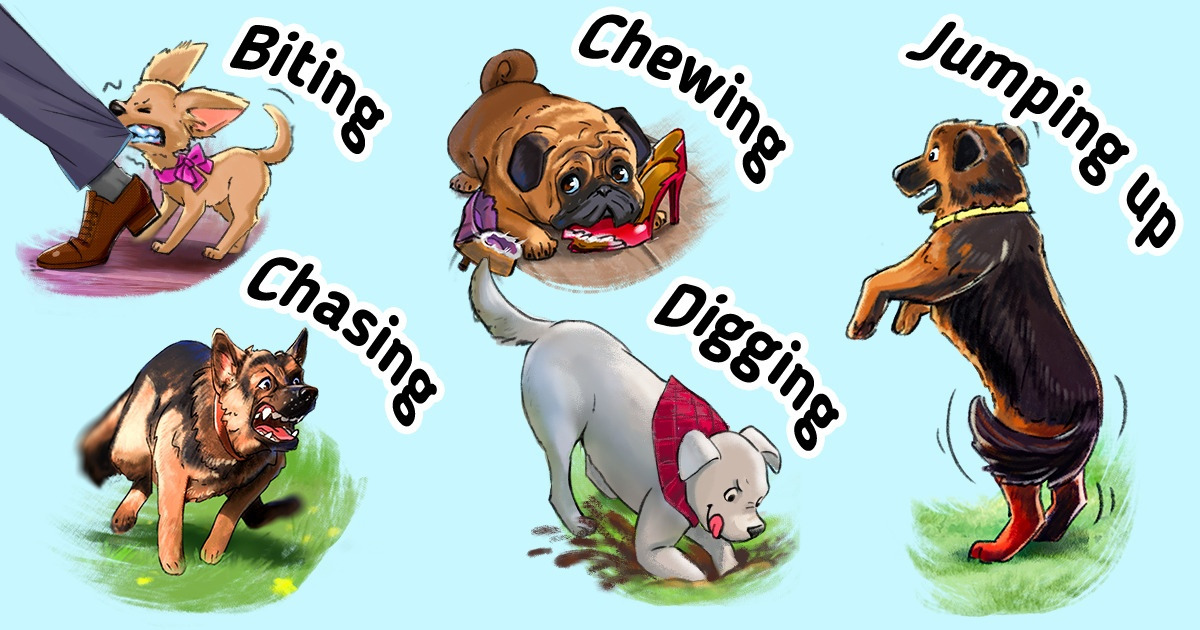
Just like humans, different behavioral problems might affect dogs’ lives, and as such, they may lead to some unexpected consequences. Dogs may want to leave the house or get into fights with other animals outside, for example. They may also show some destructive patterns in households, like attempting to bite, chew and damage property, dig holes in the garden, and more. But don’t let your guard down just yet because there are plenty of solutions out there.
5-Minute Crafts rounded up some common dog behavior issues to help you understand why your furry pals do the things they do and how you can deal with it.
❗ Important: This article is for informative purposes only, and before taking any action on your dog’s behavioral issues, it’s strongly recommended you consult with your veterinarian first.
1. Excessive barking
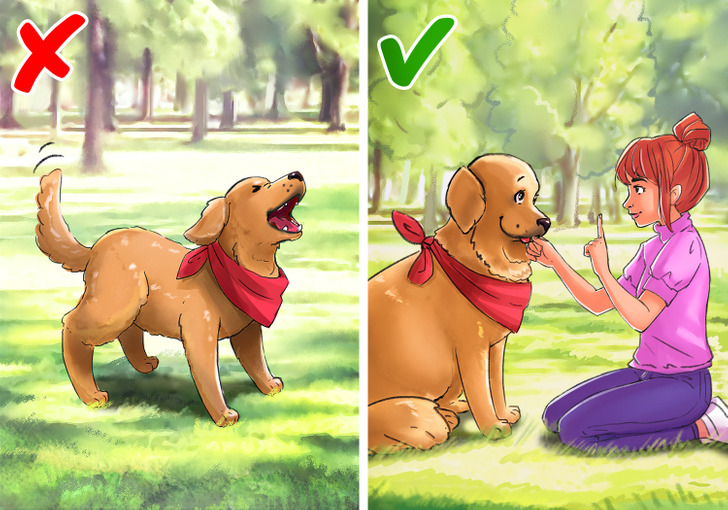
Barking is a vocal communication; dogs do it when they’re alarmed or if they need something. Therefore, before you attempt to correct excessive barking issues, assess them first. If a dog is rewarded with a walk outside after they bark, then your furry pal’s barking to its advantage. Otherwise, it might be an issue.
- Common reasons: warning you, wanting to play, excitement, attention-seeking, anxiety, boredom, responding to other dogs
- Solutions: Address any underlying causes of barking, provide obedience training, and reward them if they behave. Teach your furry friend bark and quiet commands, and designate certain areas with a fence so it can stay there.
2. Destructive chewing
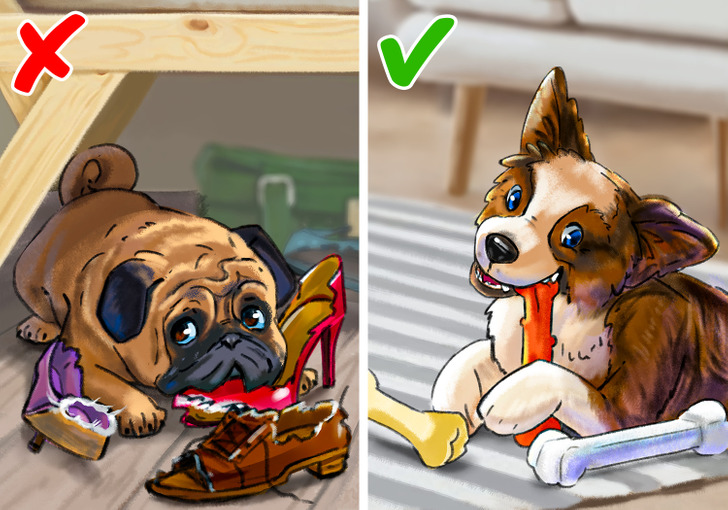
All dogs chew as part of their natural actions and, even more, it’s an important activity for them to calm down. But you may want to start looking for solutions if your furry pal takes its chewing to another level and causes major destruction.
- Common reasons: puppy teething, curiosity, boredom or excess energy, anxiety, nervousness
- Solutions: When you see chewing going on, distract your dog with sharp noises and provide appropriate chew toys instead. When not at home, keep your dog crated or confined to an area. Let it exercise a lot to wear off energy.
3. Digging
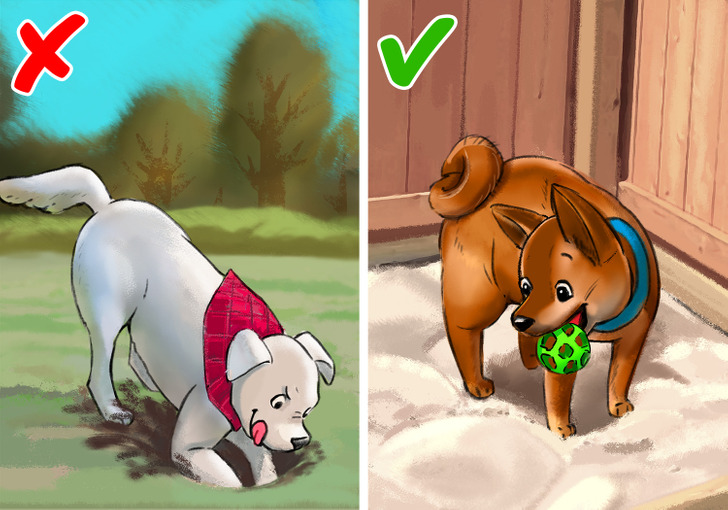
Due to their instincts, dogs dig. There are some breeds that are even more inclined to dig due to their hunting abilities, such as terriers.
- Common reasons: boredom or excess energy, anxiety or fear, hunting instinct, comfort-seeking (wanting to cool itself off), wanting to hide possessions (like bones or toys), to escape
- Solutions: When catching them in the act, firmly say, ’’No.’’ Spend more quality time together, allow them to exercise a lot, and give them training. Provide a sandbox but hide some toys buried inside — this way, they can freely dig in a designated area.
4. Separation anxiety
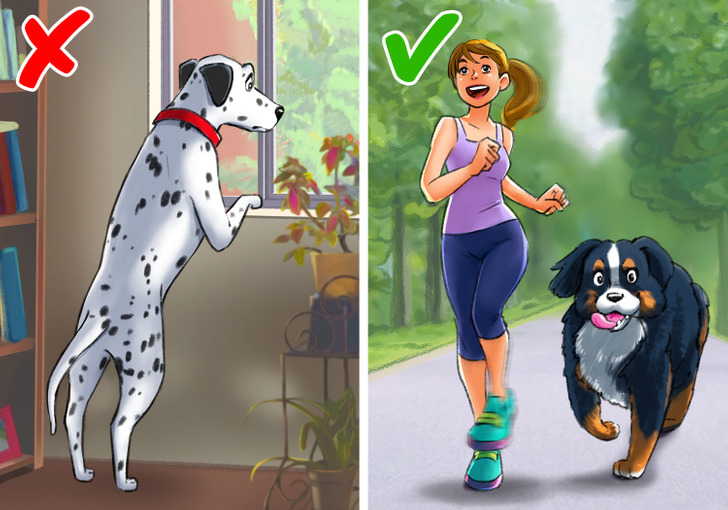
When a dog is separated from its owner, separation anxiety can reveal itself through vocalization, chewing, inappropriate urination, defecation, etc. Oftentimes, the furry pal gets anxious when its owner prepares to leave, and this is when the dog follows around its owner.
- Common reasons: The owner is leaving, or there could be a medical issue behind it.
- Solutions: When leaving, keep the radio or TV on. Provide your dog with desensitization exercises, which will help them get used to new alone-time situations. For example, exercise with your dog for 30-minute periods. Practice pre-departure cues, for example. Go to the door, make a crack sound, then close the door, or go outside and close the door behind you but ensure you come right back. Consult with your vet for further advice.
5. Begging for food
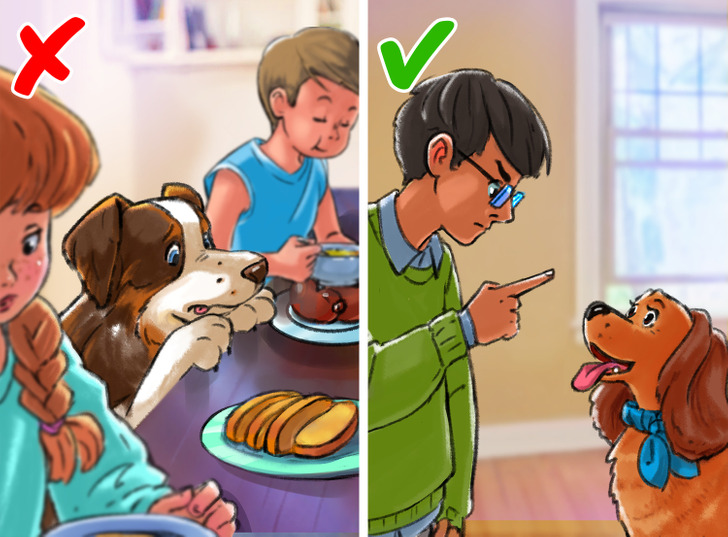
Just like some humans, some dogs love food, therefore, they’re prone to begging, which may lead to digestive problems and obesity.
- Common reasons: At times, this issue results from the dog owners allowing their furry pals to eat off their plate “just this once.” Though it may sound okay for a short time, it creates a problem in the end.
- Solutions: Never give them food. Command your dog to go somewhere away from you while you’re eating so that they can’t stare at you. You can also confine your dog to another room until you’re done. If they behave, give them a special treat.
6. Chasing
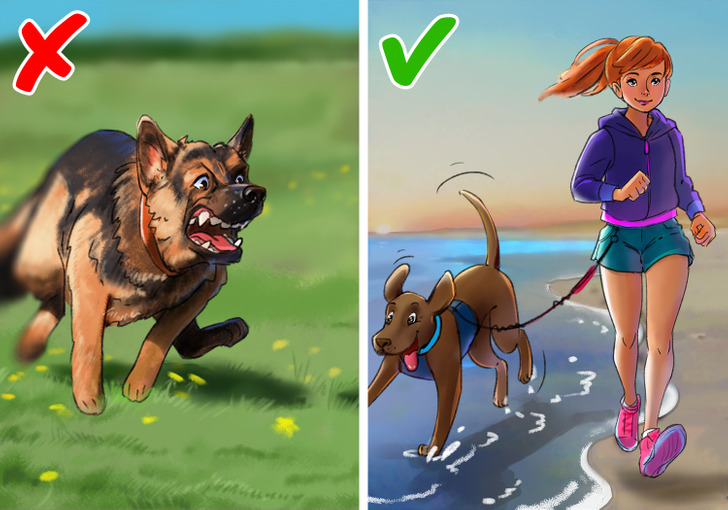
- Common reasons: Due to their predatory instincts, dogs chase any moving thing, be it a small child or a cat, squirrel, car, etc. Sometimes, it may lead to dangerous outcomes.
- Solutions: Provide dedicated training with ’’sit’’ and ’’stop’’ commands. Ensure you always keep your furry friend on a leash. Have a dog whistle or noisemaker on hand to get your dog’s attention.
7. Jumping
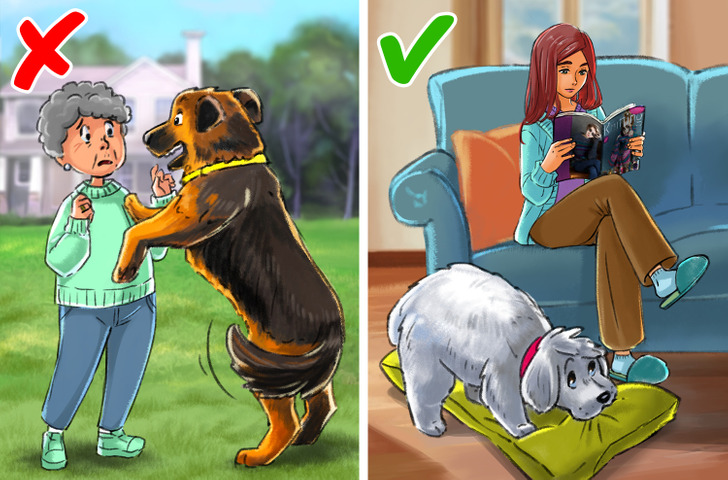
When dogs get excited, want to greet someone, or catch something from a person, they jump. If jumping becomes excessive, then it may be dangerous.
8. Biting
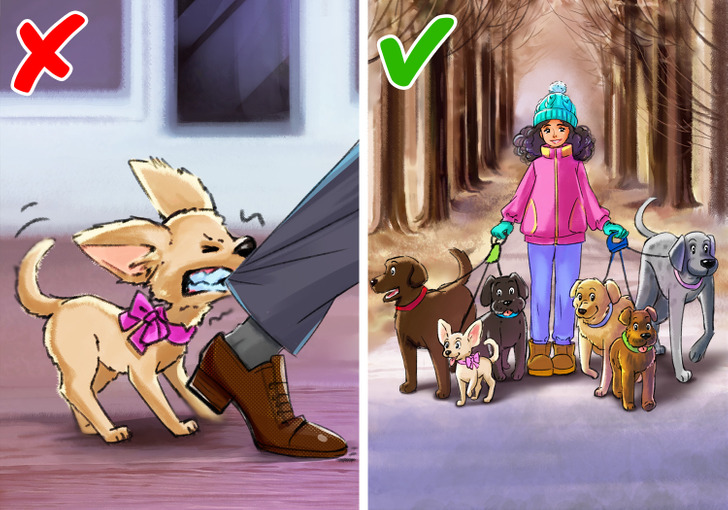
As a natural instinct, puppies are prone to biting to explore the environment. However, they also bite when they feel threatened. Dog owners can train their puppies to prevent this.